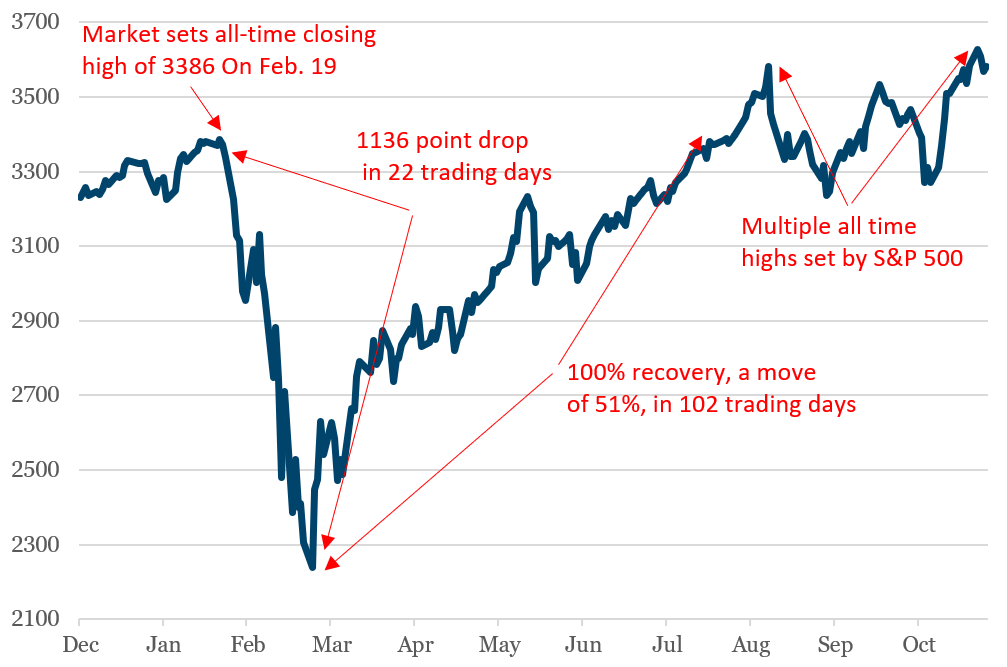|
It goes without saying that most of us will be glad for 2020 to end, as it has been one of the most exhausting years in modern history. This past year is undeniably one for the history books on many fronts, including: human pandemics, the stock market, the economy, social impacts and politics. There is no doubt students and historians will be studying and analyzing 2020 for decades to come. Amazingly, despite the trials and tribulations 2020 has delivered, as of this writing, the markets are in positive territory for the year, despite being one of the most volatile markets in history. Below we review the events that caused this volatility. 2020 events that are statistically unlikely to reoccur in our lifetime…
S&P 500 (year to date) Planning: Year-End Financial Planning Deadlines As 2020 comes to an end, there may be a few items that need to be completed before the clock strikes midnight on December 31st.
Dream boldly. Plan wisely.
|



